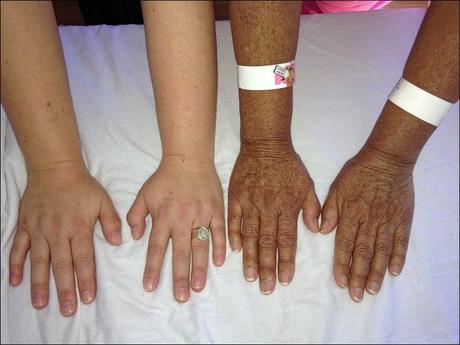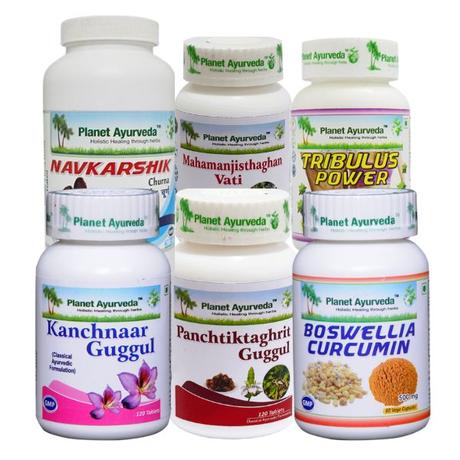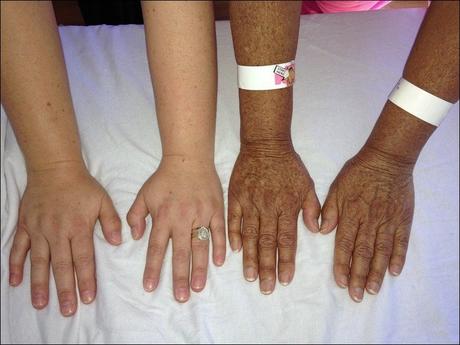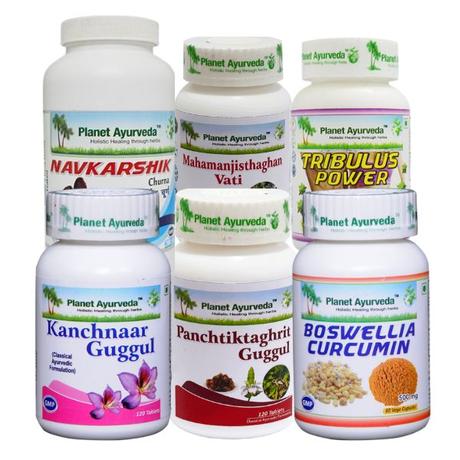ABSTRACT
Autoimmune Polyglandular Syndrome type 2 is an autoimmune disorder that affects the hormone-producing (endocrine) gland and is characterized by the presence of Addison's disease with autoimmune thyroid and Diabetes type 1. Endocrine disorders are diseases that affect the endocrine system which includes various glands and organs that travel through the blood and affect the other organs in the body and control various body functions and coordinate the process of the body. Autoimmune disease is a condition that is due to an abnormal response of the immune system. In Immunology, autoimmunity is the system that shows its immune response against its own body tissues and cells. There is a presence of antibodies/T cells which react with self-protein and its hyperreactivity leads to damage to the tissue. Immune system disorder shows abnormal low-level activity or over-activity of the immune system which attacks the body tissues. Immune deficiency decreases the ability of the body to fight against invaders and is vulnerable to infections. In this article, we are going to discuss the causes, symptoms, and Ayurvedic aspects in detail.

INTRODUCTION
Autoimmune Polyglandular Syndrome type 2 is known as Schmidt's syndrome which is a rare autoimmune disorder that involves adrenal insufficiency (Addison's disease) and thyroid insufficiency (Hashimoto's thyroiditis). It is the combination of autoimmune primary adrenal insufficiency. In 1926, it was reported as a glandular disease which involved genetic and environmental factors. It is heterogenous and is not linked to one gene, and carries a particular human leukocyte antigen (HLA-DQ2, HLA-DQ8, HLA-DR4) which affects women greater than men hence it is a multifactorial disorder and shows the inflammatory infiltrate (lymphocytes). It is an Autoimmune disease with polygenic inheritance commonly known as Schmidt syndrome and Carpenter Syndrome. Commonly there is a clustering of multiple endocrine diseases which leads to lymphocytic infiltration and causes specific organ damage. It includes Primary hypogonadism, Myasthenia Gravis, and Celiac disease which is commonly observed in this syndrome. When there is a combination of Addison Disease, Graves disease, and type 1 diabetes mellitus this tri-glandular syndrome is known as Carpenter syndrome. When there is a failure of endocrine glands there will be malnutrition as the ability of the intestinal tract is reduced dramatically. It can be a life-threatening condition if not treated on time.
HISTORY
It was first recognized by Martin Benno Schmidt and was first described in 1926 with two patients who were suffering from Addison disease and chronic lymphocytic thyroiditis.
EPIDEMIOLOGY
- Autoimmune polyglandular syndrome type 2 has a prevalence of 1:20,000 in general which affects the 3:1 ratio of women to males.
- Its main incidence is seen in the 3rd-4th decade of life.
- It has familial clustering and multiple family members are affected.
- Patients who suffer from APS (Autoimmune polyglandular syndrome) type 2 generally which is present Autoimmune thyroid present in 70-75%, Autoimmune Diabetes is present in 40-60% and in Addison disease, it is present in 40-50%.
- It is a polygenic disorder with autosomal dominant and incomplete penetrance.
GENETICS
- Autosomal disorders are determinants of susceptibility to APS 2 which mainly resides in human Leukocyte antigens (HLA).
- The inheritance of PAS 2 is complex, on chromosome 6 which plays a predominant role.
- Autoimmune Polyglandular syndrome type 2 is an autoimmune disorder that mainly affects the endocrine gland.
- It shows chronic inflammatory infiltration (lymphocytes) which have autoantibodies that react to antigens.
- There is a complex interaction between the non-Human leukocyte antigen loci and environmental factors.
SIGNS AND SYMPTOMS
- Symptoms differ from patient to patient which include Primary Adrenal deficiency which is mainly associated with Schmidt syndrome.
- In a patient who suffers from Type 1 Diabetes mellitus, Addison's Disease which has hypoglycemia and fatigue is severe.
- Decreased Insulin requirements, hypotension, and hyperpigmentation may be present.
- The patient suffers from Adrenal Insufficiency which includes Dizziness, Abdominal pain, Weakness, and nausea.
- Hypothyroidism with Type 1 diabetes has fatigue, decreased insulin requirement, and Hyperthyroidism with increased insulin requirements and hyperglycemia.
- Addison's Disease includes symptoms such as Hyponatremia, Hyperkalemia, Hypoglycemia, and Elevated levels of Thyrotropin (TSH).
- Frequent Urination and Myalgias.
- Hypogonadism
- Grave's disease and Hashimoto's thyroiditis
- Hypoparathyroidism
- Diabetes mellitus
- Orthostasis
- Weakness
- Emesis
- Dizziness
- Adrenal insufficiency leads to the development of Anorexia.
- Fatigue
- Hypotension
- Weight loss
- Hyperpigmentation
- Reduce insulin requirement
- Hypoglycemia
- Fatigue
DIAGNOSIS
- CT Scan
- MRI
- Ultrasound
- Diagnosis of Addison's disease (primary adrenal insufficiency due to autoimmune adrenalitis) is based on serum cortisol which is done early in the morning.
- In Autoimmune polyglandular syndrome, type 2 the amount of 21 hydroxylase decreases as there is a progression of the disease.
- Diagnosis of Primary hypothyroidism is based on the elevated level of serum TSH and low level of T4 level. Anti-thyroglobulin antibodies and anti-thyroid peroxidase are helpful in confirming the autoimmune etiology.
TREATMENT
- Treatment of primary hypothyroidism and physiological thyroid hormone replacement therapy with levothyroxine.
- In chronic Addison's disease there is a physiologic glucocorticoid and mineralocorticoid replacement therapy is advised.
- Cyclosporin A
- Iso Hormonal therapy
- Thyroid-stimulating hormone
- Various dietary guidelines
AYURVEDIC ASPECT
According to Ayurveda Autoimmune diseases are formed due to excessive Ama (endotoxins) in the body. Ama is a toxin and undigested metabolic waste which gets accumulated in the body, it blocks the various channels in the human body which include the lymphatic system, blood vessels, and the genitourinary tract. This is due to the weak action of Agni which results in undigested food which is the prime source of diseases. Apakva Ahara Ras is an accumulation of waste products in the form of mala (waste products) and is the early doshas vitiation of doshas dushti. Due to the hypo-functioning of the digestive fire, it leads to undigested food and forms immature digestive juices for a longer period of time. This undigested food undergoes fermentation and this is known as ama.
The Improper formation of Rasa dhatu due to weak digestive fire (is the first level of agni which is nourishing the rest of the tissues). This accumulation gives rise to severe diseases and the body faces weakness.
PATHOGENESIS
It is a condition where tridoshas and Sapta dhatu and Mala get permeated with Ama (endotoxins) produced in Amashaya get vitiated into various marga and produce many diseases. Sama doshas spread to all the Rogas marga from Shakha to Koshtha and vice versa. Jatharagni, Panchbhut Agni, and dhatu-Agni are the main three agni in the body and Jatharagni are the main which digest the ingested food.
CAUSES OF AMA PRODUCTION
- The Agnimandya (low digestive fire)- Due to low digestion the food is not fully digested and there is a formation of toxic products thus making absorption sluggish and there incomplete digestion.
- Dhatu-Agnimandya (low tissue fire)- Tissue fire plays an important role in the formation of tissues from nutrient substances and when the power of fire is diminished there will be incomplete utilization of tissues and formation of Ama (endotoxins).
- Mala Sanchaya (accumulation of waste products)- When the excretion becomes inadequate due to excessive production of the defective excretion it gets accumulated in the body and forms a toxic substance (Ama).
- Krimi Visha (bacterial worms)- Due to infections of various pathogenic organisms it causes toxic substances.
PROPERTIES OF AMA
- Ama is the form of undigested materials.
- Heterogeneous with a foul smell that gets combined with sweat, sputum, and in the form of excretory products of the human body.
- Causes lethargy and laziness to a huge extent.
SIGNS AND SYMPTOMS OF AMA
- Obstruction and srotodha occur in various channels such as in blood vessels, the respiratory tract, gastrointestinal tract.
- Disturbances in various nerve impulses.
- Pain ache
- Sticky Tongue (coated)
- Depression
- Deposition of oxalates.
- Frequent allergic reactions
- Bacterial infections
- Heaviness and lethargy
Planet Ayurveda is a GMP- certified ayurvedic clinic which formulates various remedies to prevent multiple health issues and relieve the disease of the diseased person. All formulations which are made are free from any kind of additives, color, resins, and gums. These remedies are 100% pure and are formulated under the supervision of M.D Ayurveda practitioners. For the purpose of management of Autoimmune Polyendocrine Syndrome Type 2, Planet Ayurveda provided herbal remedies which we will discuss further in this article in detail.
PRODUCTS LIST1. Kanchnaar Guggul
2. Boswellia Curcumin
3. Navkarshik Churna
4. Panchtiktaghrit Guggul
5. Mahamanjisthaghan Vati
6. Tribulus Power


Product Description
1. Kanchnaar Guggul
Kanchnaar Guggul is herbal tablets formulations which are made by planet Ayurveda using various ingredients Kachnar Bark (Bauhinia variegata), Amalaki (Emblica officinalis), Tejapatra (Cinnamomum tamala) and many more. These tablets are useful in the treatment of drying excessive Kapha and have anti-inflammatory properties and are helpful in promoting healthy functions of the body. Reduces the accumulation of Ama and is helpful in reshaping the body and controlling excessive weight.
Dosage: 2 tablets twice daily with lukewarm water.
2. Boswellia Curcumin
Boswellia Curcumin is a polyherbal capsule which is made by planet ayurveda using ingredients such as Shallaki (Boswellia serrata) and Curcumin (Curcuma longa). These herbs have anti-inflammatory properties which reduce the pain and swelling in the body. It is a rich source of antioxidants that maintains a healthy cardiovascular system.
Dosage: 1 capsule twice daily after meals with plain water.
3. Navkarshik Churna
Navkarshik Churna is polyherbal churna which is formulated by planet Ayurveda using ingredients such as Amla (Emblica Officinalis), Vacha (Acorus calamus), Manjistha (Rubia cordifolia), Katuki (Picrorhiza kurroa) and many more. Navkarshik Churna has anti-inflammatory properties which relieve pain and heal wounds. This churna is helpful in removing toxins from the body and helpful in purification. Detoxify the liver and clear away the uric acid from the blood.
Dosage-: ½- ½ teaspoon twice daily after meals with plain water.
4. Panchtiktaghrit Guggul
Panchtikta Ghrit Guggul is a herbal tablet formulation which is manufactured by planet ayurveda using ingredients such as Neem (Azadirachta indica), Kantkari (Solanum xanthocarpum), Patola Patra (Trichosanthes dioica) and many more. It is a natural blood purifier and is a rich source of antioxidants and has anti-inflammatory properties. Improves digestion and eliminates toxins from the body.
Dosage: 2 tablets thrice daily with lukewarm water.
5. Mahamanjisthaghan Vati
Mahamanjisthaghan Vati is a herbal tablet which is made by Planet Ayurveda using a standardized extract of Manjistha (Rubia cordifolia). It clears away the inflammatory toxins from the body so it is helpful in various skin diseases. Clear the heat by cleaning the liver and promoting bowel movements. Maintains the quality of skin and tone.
Dosage: 2 Tablets twice daily with lukewarm water.
6. Tribulus Power
Tribulus Power is a single herbal capsule which is made by planet ayurveda using Gokshura (Tribulus terrestris). Tribulus power is helpful in building up stamina and is a rich source of antioxidants that improves the digestive fire and nourishes the body. Helpful in boosting the level of testosterone. Manages calculi and breathing disorders.
CONTACT PLANET AYURVEDA TO PROVIDE YOU WITH THE COSTING / ORDERING AND DELIVERY INFORMATION AT - [email protected] OR CALL AT +91-172-5214040Dosage- 1 capsule twice daily with plain water after meals.
CONCLUSION
Autoimmune Polyendocrine Syndrome type 2 is known as Schmidt's syndrome which is a rare autoimmune disorder that involves adrenal insufficiency (Addison's disease) and thyroid insufficiency (Hashimoto's thyroiditis). According to Ayurveda Autoimmune diseases are formed due to excessive Ama (endotoxins) in the body. Ama is a toxin and undigested metabolic waste which gets accumulated in the body, it blocks the various channels in the human body. This accumulation gives rise to severe diseases and the body faces weakness. In this article, we studied various herbal supplements from planet Ayurveda which are helpful in this disease without causing any side effects.
DR. Vikram Chauhan, MD - AYURVEDA is an expert ayurvedic doctor based in Chandigarh, India and doing his practice in Mohali, India. He is spreading the knowledge of Ayurveda - Ancient healing treatment, not only in India but also abroad. He is the CEO and Founder of Planet Ayurveda Products, Planet Ayurveda Clinic and Krishna Herbal Company. Write at - [email protected], Contact at - +91-172-521-4030 Websites - www.planetayurveda.com, www.alwaysayurveda.com
View more posts from this authorABSTRACT
Autoimmune Polyglandular Syndrome type 2 is an autoimmune disorder that affects the hormone-producing (endocrine) gland and is characterized by the presence of Addison's disease with autoimmune thyroid and Diabetes type 1. Endocrine disorders are diseases that affect the endocrine system which includes various glands and organs that travel through the blood and affect the other organs in the body and control various body functions and coordinate the process of the body. Autoimmune disease is a condition that is due to an abnormal response of the immune system. In Immunology, autoimmunity is the system that shows its immune response against its own body tissues and cells. There is a presence of antibodies/T cells which react with self-protein and its hyperreactivity leads to damage to the tissue. Immune system disorder shows abnormal low-level activity or over-activity of the immune system which attacks the body tissues. Immune deficiency decreases the ability of the body to fight against invaders and is vulnerable to infections. In this article, we are going to discuss the causes, symptoms, and Ayurvedic aspects in detail.

INTRODUCTION
Autoimmune Polyglandular Syndrome type 2 is known as Schmidt's syndrome which is a rare autoimmune disorder that involves adrenal insufficiency (Addison's disease) and thyroid insufficiency (Hashimoto's thyroiditis). It is the combination of autoimmune primary adrenal insufficiency. In 1926, it was reported as a glandular disease which involved genetic and environmental factors. It is heterogenous and is not linked to one gene, and carries a particular human leukocyte antigen (HLA-DQ2, HLA-DQ8, HLA-DR4) which affects women greater than men hence it is a multifactorial disorder and shows the inflammatory infiltrate (lymphocytes). It is an Autoimmune disease with polygenic inheritance commonly known as Schmidt syndrome and Carpenter Syndrome. Commonly there is a clustering of multiple endocrine diseases which leads to lymphocytic infiltration and causes specific organ damage. It includes Primary hypogonadism, Myasthenia Gravis, and Celiac disease which is commonly observed in this syndrome. When there is a combination of Addison Disease, Graves disease, and type 1 diabetes mellitus this tri-glandular syndrome is known as Carpenter syndrome. When there is a failure of endocrine glands there will be malnutrition as the ability of the intestinal tract is reduced dramatically. It can be a life-threatening condition if not treated on time.
HISTORY
It was first recognized by Martin Benno Schmidt and was first described in 1926 with two patients who were suffering from Addison disease and chronic lymphocytic thyroiditis.
EPIDEMIOLOGY
- Autoimmune polyglandular syndrome type 2 has a prevalence of 1:20,000 in general which affects the 3:1 ratio of women to males.
- Its main incidence is seen in the 3rd-4th decade of life.
- It has familial clustering and multiple family members are affected.
- Patients who suffer from APS (Autoimmune polyglandular syndrome) type 2 generally which is present Autoimmune thyroid present in 70-75%, Autoimmune Diabetes is present in 40-60% and in Addison disease, it is present in 40-50%.
- It is a polygenic disorder with autosomal dominant and incomplete penetrance.
GENETICS
- Autosomal disorders are determinants of susceptibility to APS 2 which mainly resides in human Leukocyte antigens (HLA).
- The inheritance of PAS 2 is complex, on chromosome 6 which plays a predominant role.
- Autoimmune Polyglandular syndrome type 2 is an autoimmune disorder that mainly affects the endocrine gland.
- It shows chronic inflammatory infiltration (lymphocytes) which have autoantibodies that react to antigens.
- There is a complex interaction between the non-Human leukocyte antigen loci and environmental factors.
SIGNS AND SYMPTOMS
- Symptoms differ from patient to patient which include Primary Adrenal deficiency which is mainly associated with Schmidt syndrome.
- In a patient who suffers from Type 1 Diabetes mellitus, Addison's Disease which has hypoglycemia and fatigue is severe.
- Decreased Insulin requirements, hypotension, and hyperpigmentation may be present.
- The patient suffers from Adrenal Insufficiency which includes Dizziness, Abdominal pain, Weakness, and nausea.
- Hypothyroidism with Type 1 diabetes has fatigue, decreased insulin requirement, and Hyperthyroidism with increased insulin requirements and hyperglycemia.
- Addison's Disease includes symptoms such as Hyponatremia, Hyperkalemia, Hypoglycemia, and Elevated levels of Thyrotropin (TSH).
- Frequent Urination and Myalgias.
- Hypogonadism
- Grave's disease and Hashimoto's thyroiditis
- Hypoparathyroidism
- Diabetes mellitus
DIAGNOSIS
- Ultrasound
- Diagnosis of Addison's disease (primary adrenal insufficiency due to autoimmune adrenalitis) is based on serum cortisol which is done early in the morning.
- In Autoimmune polyglandular syndrome, type 2 the amount of 21 hydroxylase decreases as there is a progression of the disease.
- Diagnosis of Primary hypothyroidism is based on the elevated level of serum TSH and low level of T4 level. Anti-thyroglobulin antibodies and anti-thyroid peroxidase are helpful in confirming the autoimmune etiology.
TREATMENT
- Treatment of primary hypothyroidism and physiological thyroid hormone replacement therapy with levothyroxine.
- In chronic Addison's disease there is a physiologic glucocorticoid and mineralocorticoid replacement therapy is advised.
- Cyclosporin A
- Iso Hormonal therapy
- Thyroid-stimulating hormone
- Various dietary guidelines
AYURVEDIC ASPECT
According to Ayurveda Autoimmune diseases are formed due to excessive Ama (endotoxins) in the body. Ama is a toxin and undigested metabolic waste which gets accumulated in the body, it blocks the various channels in the human body which include the lymphatic system, blood vessels, and the genitourinary tract. This is due to the weak action of Agni which results in undigested food which is the prime source of diseases. Apakva Ahara Ras is an accumulation of waste products in the form of mala (waste products) and is the early doshas vitiation of doshas dushti. Due to the hypo-functioning of the digestive fire, it leads to undigested food and forms immature digestive juices for a longer period of time. This undigested food undergoes fermentation and this is known as ama.
The Improper formation of Rasa dhatu due to weak digestive fire (is the first level of agni which is nourishing the rest of the tissues). This accumulation gives rise to severe diseases and the body faces weakness.
PATHOGENESIS
It is a condition where tridoshas and Sapta dhatu and Mala get permeated with Ama (endotoxins) produced in Amashaya get vitiated into various marga and produce many diseases. Sama doshas spread to all the Rogas marga from Shakha to Koshtha and vice versa. Jatharagni, Panchbhut Agni, and dhatu-Agni are the main three agni in the body and Jatharagni are the main which digest the ingested food.
CAUSES OF AMA PRODUCTION
- The Agnimandya (low digestive fire)- Due to low digestion the food is not fully digested and there is a formation of toxic products thus making absorption sluggish and there incomplete digestion.
- Dhatu-Agnimandya (low tissue fire)- Tissue fire plays an important role in the formation of tissues from nutrient substances and when the power of fire is diminished there will be incomplete utilization of tissues and formation of Ama (endotoxins).
- Mala Sanchaya (accumulation of waste products)- When the excretion becomes inadequate due to excessive production of the defective excretion it gets accumulated in the body and forms a toxic substance (Ama).
- Krimi Visha (bacterial worms)- Due to infections of various pathogenic organisms it causes toxic substances.
PROPERTIES OF AMA
- Ama is the form of undigested materials.
- Heterogeneous with a foul smell that gets combined with sweat, sputum, and in the form of excretory products of the human body.
- Causes lethargy and laziness to a huge extent.
SIGNS AND SYMPTOMS OF AMA
- Obstruction and srotodha occur in various channels such as in blood vessels, the respiratory tract, gastrointestinal tract.
- Disturbances in various nerve impulses.
- Sticky Tongue (coated)
- Depression
- Deposition of oxalates.
- Frequent allergic reactions
- Bacterial infections
- Heaviness and lethargy
Planet Ayurveda is a GMP- certified ayurvedic clinic which formulates various remedies to prevent multiple health issues and relieve the disease of the diseased person. All formulations which are made are free from any kind of additives, color, resins, and gums. These remedies are 100% pure and are formulated under the supervision of M.D Ayurveda practitioners. For the purpose of management of Autoimmune Polyendocrine Syndrome Type 2, Planet Ayurveda provided herbal remedies which we will discuss further in this article in detail.
PRODUCTS LIST1. Kanchnaar Guggul
2. Boswellia Curcumin
3. Navkarshik Churna
4. Panchtiktaghrit Guggul
5. Mahamanjisthaghan Vati
6. Tribulus Power


Product Description
1. Kanchnaar Guggul
Kanchnaar Guggul is herbal tablets formulations which are made by planet Ayurveda using various ingredients Kachnar Bark (Bauhinia variegata), Amalaki (Emblica officinalis), Tejapatra (Cinnamomum tamala) and many more. These tablets are useful in the treatment of drying excessive Kapha and have anti-inflammatory properties and are helpful in promoting healthy functions of the body. Reduces the accumulation of Ama and is helpful in reshaping the body and controlling excessive weight.
Dosage: 2 tablets twice daily with lukewarm water.
2. Boswellia Curcumin
Boswellia Curcumin is a polyherbal capsule which is made by planet ayurveda using ingredients such as Shallaki (Boswellia serrata) and Curcumin (Curcuma longa). These herbs have anti-inflammatory properties which reduce the pain and swelling in the body. It is a rich source of antioxidants that maintains a healthy cardiovascular system.
Dosage: 1 capsule twice daily after meals with plain water.
3. Navkarshik Churna
Navkarshik Churna is polyherbal churna which is formulated by planet Ayurveda using ingredients such as Amla (Emblica Officinalis), Vacha (Acorus calamus), Manjistha (Rubia cordifolia), Katuki (Picrorhiza kurroa) and many more. Navkarshik Churna has anti-inflammatory properties which relieve pain and heal wounds. This churna is helpful in removing toxins from the body and helpful in purification. Detoxify the liver and clear away the uric acid from the blood.
Dosage-: ½- ½ teaspoon twice daily after meals with plain water.
4. Panchtiktaghrit Guggul
Panchtikta Ghrit Guggul is a herbal tablet formulation which is manufactured by planet ayurveda using ingredients such as Neem (Azadirachta indica), Kantkari (Solanum xanthocarpum), Patola Patra (Trichosanthes dioica) and many more. It is a natural blood purifier and is a rich source of antioxidants and has anti-inflammatory properties. Improves digestion and eliminates toxins from the body.
Dosage: 2 tablets thrice daily with lukewarm water.
5. Mahamanjisthaghan Vati
Mahamanjisthaghan Vati is a herbal tablet which is made by Planet Ayurveda using a standardized extract of Manjistha (Rubia cordifolia). It clears away the inflammatory toxins from the body so it is helpful in various skin diseases. Clear the heat by cleaning the liver and promoting bowel movements. Maintains the quality of skin and tone.
Dosage: 2 Tablets twice daily with lukewarm water.
6. Tribulus Power
Tribulus Power is a single herbal capsule which is made by planet ayurveda using Gokshura (Tribulus terrestris). Tribulus power is helpful in building up stamina and is a rich source of antioxidants that improves the digestive fire and nourishes the body. Helpful in boosting the level of testosterone. Manages calculi and breathing disorders.
CONTACT PLANET AYURVEDA TO PROVIDE YOU WITH THE COSTING / ORDERING AND DELIVERY INFORMATION AT - [email protected] OR CALL AT +91-172-5214040Dosage- 1 capsule twice daily with plain water after meals.
CONCLUSION
Autoimmune Polyendocrine Syndrome type 2 is known as Schmidt's syndrome which is a rare autoimmune disorder that involves adrenal insufficiency (Addison's disease) and thyroid insufficiency (Hashimoto's thyroiditis). According to Ayurveda Autoimmune diseases are formed due to excessive Ama (endotoxins) in the body. Ama is a toxin and undigested metabolic waste which gets accumulated in the body, it blocks the various channels in the human body. This accumulation gives rise to severe diseases and the body faces weakness. In this article, we studied various herbal supplements from planet Ayurveda which are helpful in this disease without causing any side effects.

